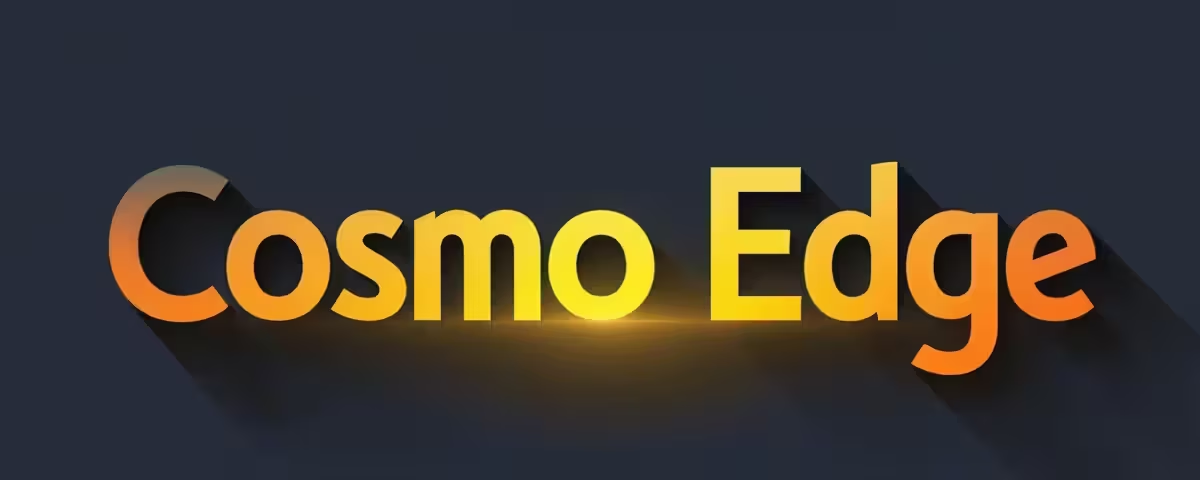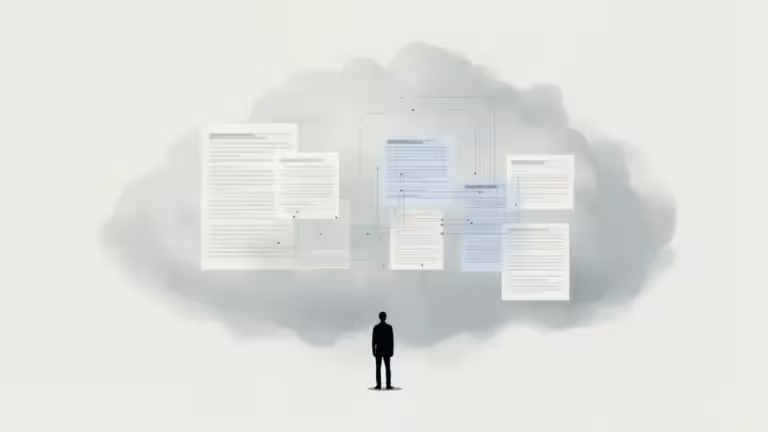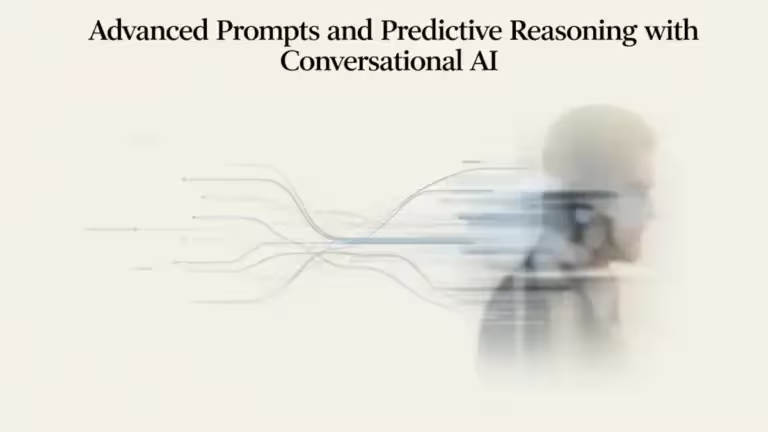Educational AI becomes reality: the Icelandic example

In Iceland, artificial intelligence is moving from the lab to the classroom. Through a partnership between Anthropic and the Icelandic Ministry of Education and Children, the country is launching one of the world’s first national AI education programs. The goal is to give every teacher, from Reykjavik to the most remote villages, access to Claude, Anthropic’s advanced AI assistant. This pilot project, ambitious in both scale and vision, could transform how Europe approaches teaching and learning with AI.
Find every analysis and summary in our AI Weekly News section to stay updated on the latest trends shaping artificial intelligence.
A nationwide experiment in AI-powered education
A public-private partnership built around Claude
Launched in 2024, the collaboration between Anthropic and the Icelandic government is part of a broader plan to modernize education with artificial intelligence while preserving national language and culture.
The Ministry provides the educational framework and coordinates teacher training, while Anthropic delivers the technical infrastructure, the Claude AI model, and a full set of teaching resources and training materials. According to Anthropic, this is among the first large-scale attempts worldwide to integrate AI in education at a national level.
Claude helps teachers prepare lessons, tailor materials to different learning levels, and save time on administrative tasks. The project’s guiding idea is clear: reduce teachers’ workload so they can focus on their core mission, teaching.

Click to enlarge
A focus on language and cultural preservation
For Iceland, adopting AI is not just a question of efficiency but also a matter of linguistic and cultural sovereignty. By supporting an AI system that understands and uses Icelandic, the government avoids the dominance of English in digital tools.
As Euronews explains, this approach reflects a balanced vision, embracing global innovation while maintaining local identity.
This makes educational AI not only a tool for modernization but also an instrument of digital sovereignty, ensuring that technology adapts to local needs rather than the reverse.
National ambitions for digital education
The experiment fits within Iceland’s long-term strategy to modernize public education. The government aims to strengthen digital literacy among teachers, reduce geographical inequalities, and promote technological culture from early childhood.
More than adopting new tools, Iceland is testing an ethical and human-supervised AI integration model, where all use cases remain under teacher control. This initiative could serve as a reference point for other European countries seeking to balance innovation with cultural protection.
How AI is integrated into classrooms
An AI assistant for teachers
The program focuses primarily on teachers. Each participating educator has access to Claude, designed to assist in lesson preparation, content adaptation, and learning differentiation. The AI can analyze texts, rewrite instructions, or suggest exercises aligned with specific educational goals.
Anthropic also provides a training network and support materials to ensure successful adoption. As noted by Anthropic, the project aims to show how governments can deploy AI for education in a responsible and practical way, without undermining teachers’ roles.
AI for personalized and inclusive learning
Claude does not interact directly with students. Instead, it assists teachers in creating personalized learning materials. The model learns from each teacher’s own documents and methods, allowing for tailored content creation without collecting personal data.
Teachers can thus generate exercises, graded reading materials, or course summaries while maintaining full control over the final output. This human-AI collaboration enhances teaching quality and promotes pedagogical diversity.
Ethical safeguards and data governance
The program is built on strict governance principles:
- Continuous human oversight of AI-generated content
- Full data protection, with no collection of personal information
- Independent audits to ensure transparency and compliance
This ethical framework complies with the GDPR and anticipates the upcoming European AI Act. Iceland’s initiative demonstrates how responsible AI in education can serve as a model for trust and transparency.
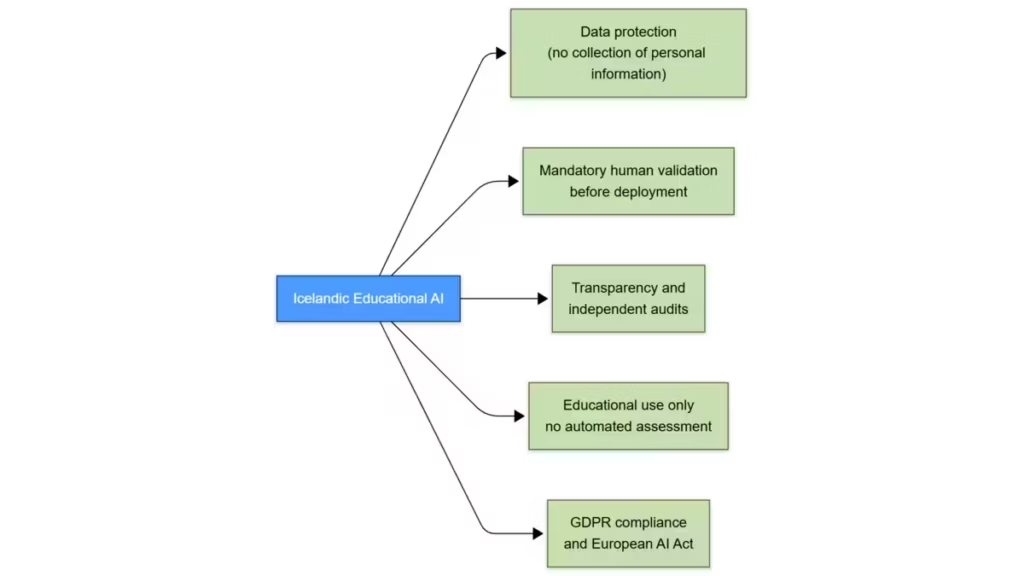
Anthropic as a trusted partner
Why Reykjavik chose Anthropic
The Icelandic government chose Anthropic for its focus on AI safety, transparency, and responsible governance. Founded by former OpenAI engineers, Anthropic is recognized for developing constitutional AI models, designed to reject inappropriate use cases and promote explainable decision-making.
For Iceland’s Ministry of Education, this approach aligned perfectly with European educational and legal standards. The collaboration is based on GDPR-compliant servers and continuous human supervision. As Anthropic highlights, the project illustrates how governments can integrate artificial intelligence into public services without compromising fundamental values.
Claude as a tool for pedagogy
Claude stands out for its ability to analyze and interpret complex educational content, whether literary texts or math problems. It helps teachers craft bilingual resources, clear explanations, and adaptive exercises for different student levels.
This flexibility makes Claude a versatile educational tool applicable across disciplines. According to Euronews, the model understands Icelandic and multiple other languages, reinforcing inclusivity in the national education system.
A real-world test for responsible AI
The Icelandic initiative serves as both a technical and policy laboratory. For Anthropic, it’s a chance to demonstrate the reliability of its models in public-sector environments. For Iceland, it’s a showcase of public-private cooperation aligned with Europe’s digital trust strategy.
These experiments are helping shape a common framework where AI performance meets ethical transparency, a combination that Europe seeks to promote globally.
Early results and field feedback
Empowered teachers and improved efficiency
Initial feedback from participating teachers shows a positive and rapid adoption of the system. According to Iceland’s Ministry of Education, around 70% of teachers report that AI saves them significant time in lesson preparation.
They also note improved differentiation in classroom activities and greater flexibility in planning. As Euronews reports, educators appreciate Claude’s ease of use and clear interface. Many see it as a professional assistant rather than a threat, praising the quality of the training provided.
Indirect benefits for students
Although the pilot targets teachers only, students are already benefiting. Teachers report higher engagement and motivation thanks to more personalized and diverse learning materials.
The ability to quickly create accessible, inclusive resources supports equal learning opportunities, especially in rural schools. This makes Iceland a unique testbed for AI-enhanced learning in Europe.
Remaining challenges
Despite the overall enthusiasm, the program still faces challenges:
- Digital access gaps, especially in remote regions
- Need for ongoing training to maintain teacher proficiency
- Long-term funding to sustain the project nationally
The government plans a comprehensive evaluation in 2026 to assess the educational impact and determine whether to scale up the initiative.
A potential model for Europe
Exportable but not easily replicable
Iceland’s experience has drawn attention from European institutions, though its replicability is limited. The country’s small size, centralized education system, and linguistic cohesion make implementation faster and simpler. Larger nations, however, must deal with fragmented infrastructures and diverse linguistic contexts.
Nonetheless, Iceland’s model shows that a localized, regulated AI system can serve as a trusted public tool. It represents a pragmatic and ethical approach to AI integration in education, combining transparency with innovation.
Europe between caution and inspiration
In Brussels, the Icelandic project is viewed as a valuable test case for the upcoming EU AI Act. The challenge is enabling AI in public services while safeguarding data privacy and human oversight.
Nordic countries like Finland and Estonia are already considering similar national EdTech and AI programs. Iceland’s experiment proves that it’s possible to blend technological innovation and educational sovereignty, provided a strong regulatory foundation is in place.
Toward international cooperation on AI in education
Iceland is sharing its results with other Nordic nations through the Global Partnership on Artificial Intelligence (GPAI). The goal is to develop a shared European standard for AI in education, built on transparency, multilingual inclusivity, and ethical governance.
This collaboration aims to strengthen Europe’s position against global tech giants by promoting a human-centered vision of AI in public education.
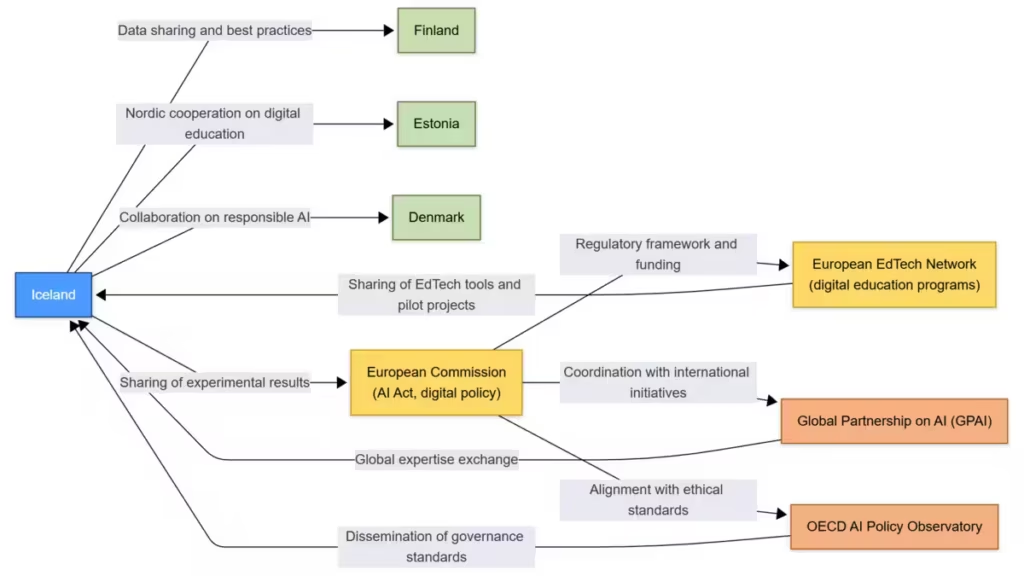
The future of AI-augmented education
A new relationship between humans and machines
Integrating AI in education redefines the teacher’s mission. Far from replacing them, AI becomes a cognitive augmentation tool, supporting planning, creativity, and personalized follow-up.
This collaboration turns teachers into learning architects, able to tailor knowledge to each student’s needs. It signals a shift toward inclusive and adaptive education, where human judgment remains central.
Schools as laboratories for social innovation
By integrating artificial intelligence into its classrooms, Iceland shows that technological progress can reinforce educational values. The country is transforming its school system into a social innovation lab, proving that AI can serve the public good without sacrificing language or culture.
This movement aligns with broader European ambitions, where technology becomes a driver of modernization, inclusion, and lifelong learning. In the long term, the Icelandic model could inspire other public policies in fields like healthcare or vocational training.
Iceland paves the way for responsible educational AI
By betting on localized and ethical AI in education, Iceland proves that innovation and sovereignty can coexist. This partnership between Anthropic and the state demonstrates how artificial intelligence can enter schools without sacrificing human supervision or cultural diversity.
The Icelandic experiment shows that a well-regulated AI system can enhance pedagogy, ease teachers’ workload, and make learning more equitable. As Europe debates the role of AI in public services, Iceland offers a concrete and inspiring path toward human-guided, AI-augmented education.
Also read : Regulate or Stall? Europe Under Pressure in the Global AI Race
Sources and references
Your comments enrich our articles, so don’t hesitate to share your thoughts! Sharing on social media helps us a lot. Thank you for your support!
